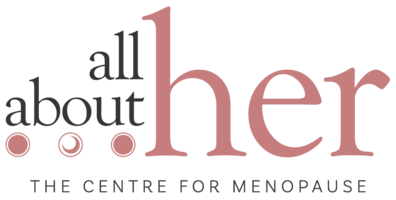
Firstly, what are the NICE Guidelines?
The National Institute for Health and Care Excellence (NICE) is a UK body that seeks to offer guidance to medical professionals with the aim to provide consistency and evidence-based care.
There has been lots of discussion around the DRAFT NICE Guidelines that were released last week. Sadly, it seems to have led to polarisation within the community of professionals working in the area of the menopausal transition. The primary discourse seems to pit MHT against psychological interventions such as CBT.
I think a more nuanced discussion actually benefits women more. What I’d like to contribute is a broader discussion about what my profession can offer those walking the peri/menopause path. Because ultimately, I don’t want to reduce what psychologists can offer to CBT alone. It has its uses AND there are other modalities that can also be helpful and necessary.
I feel it’s useful to orient you – the reader – to my own opinion. I take and value the benefits of, MHT. Unfortunately, I have not had the remarkable benefits that some women reportedly experience. MHT has not ameliorated my perimenopausal symptoms. However, in addition to the long-term health benefits, MHT has dialled down my difficult symptoms enough, such that I have the bandwidth to address the other part of the menopausal transition – the psychological factors.

But first, to CBT.
As an early career psychologist and given the settings in which I worked for the first decade, I used CBT extensively. CBT is a model that is taught in psychology degrees across most, if not all, Australian universities. As a treatment modality, it is underpinned by a universal theoretical premise and model of application. In its crudest form, the theoretical basis of CBT is that your thoughts, feelings and behaviours all impact each other. I often talk with clients about the ‘meaning’ that they make of themselves or their situation/experience. This is not the same as saying someone’s experience (i.e. hot flushes) is not real and just ‘all in their head’. Although I do know that some people report experiencing CBT as exactly this. At those times, the word ‘gaslighting’ is also often used. Having read many comments in response to the social media posts about NICE guidelines, I can see this sentiment popping up repeatedly.
There are times when people’s thinking patterns are unhelpful and CBT can assist them in forming more helpful (albeit still realistic) ways of thinking. Doing so can ‘take the heat’ out of the experience to a degree that emotional responses are dialled down. This can in turn, move someone from being unable to take the action towards a desired outcome to it now being ‘doable’.
When I think of the ‘delights’ of hot flushes (by way of example), my goal isn’t to convince myself or anyone else that they aren’t happening, that they aren’t a big deal or they are so fabulous that you’d gift the experience of them to those you love. No. My goal is to increase my own and my client’s ability to not make them anymore awful than they are. And as humans we often do that when it comes to anything that causes us distress. We load up an already difficult experience with negative meaning and judgement. We judge ourselves and our response to it (usually pretty self-critical i.e. just get on with it) and we often add to it by creating stories about what others are thinking of us too (that there’s something weak/wrong/dramatic with us). These are the parts of the experience that CBT can help us with. And as we learn ways to untangle our real experience from the unhelpful judgements about it, our capacity to cope and the belief in ourselves that we can cope, increases.
So, there is clear reason to consider CBT as an intervention to support women experiencing perimenopause. And I hope you can see that it’s not in any way about, ‘thinking away’ hot flushes. Further, many of the recommendations made to support women during these years relate to lifestyle factors. I think we all know how difficult it can be to make changes in our lives, even those that are beneficial for us. Reducing stress, improving our sleep, and creating space to add rest, nervous system regulation, exercise and nutritious meals (all in the face of the quite ridiculous demands made upon our time and energy), is difficult. CBT can help with that.

Humans are complex creatures and sometimes we need ‘more’.
I appreciate the NICE Guidelines refer to CBT for the treatment of peri/menopause symptoms. But I am yet to meet someone journeying through these years who don’t have ‘other stuff’ that is occurring at the same time. Sadly, some come with significant trauma histories that ‘flare up’ during this stage of life. Others have mental health histories and experience a reoccurrence during perimenopause. But even putting those ‘biggies’ aside, we all have lives filled with relationships, responsibilities and careers and each of these at some point (and often in midlife) will be a source of stress. I’d like to think we’re all that ‘tidy’ and that the only thing going on for us is perimenopause but that’s just not my personal or professional experience. And as such, in these instances, a more complex treatment approach (beyond MHT and/or CBT) is required.
Clearly humans are complicated and as such, there is no ‘one-size fits all’. So it’s not surprising that psychologists undertake training in many other models of intervention. Over my nearly 30-years of practice, I’ve done a LOT of training. Some of my ‘favourites’ include gestalt and somatic psychotherapy, schema therapy, EMDR, attachment-based therapy, MBT, ACT, and trauma sensitive yoga. While these models are most commonly used for individuals with more complex presentations, many coaching approaches draw from the tools each offer, to move clients forward. I draw from all of these models in a way that suits the client’s presenting issues, level of distress, immediate and long terms needs, history, support network, current life circumstances (and stressors) and capacity for mentalisation. A clear formulation grounds me and guides me on what to use and when. With this approach, I’m able to work with a range of people. Shall we say, people who are really struggling through to those who are travelling well and want to thrive.
But it’s not just about MHT vs CBT vs other models. Nor is it just about reducing/managing symptoms vs dealing with ‘complex presentations’ vs psychosocial stressors. Something deeper is occurring and to be frank, I am frustrated that this tends to be overlooked.

It’s more than just a biological process.
Perimenopause is not only a biological process; it is also an event that triggers a psychological developmental process. Just like the many other psychological developmental stages that occur across our lifespan. There is less research that speaks to these nuanced changes in this stage but if you look to the qualitative research, literature (non-fiction and fiction), movies, social commentary and listen to those in the thick of perimenopause, you’ll find consistent themes of significant psychological change. And change (particularly when it’s not actively orchestrated by ourselves) is often experienced as ‘struggle’. However on the other side of it, is growth. And it’s this, that I think the ‘thrivers’ in menopause or midlife, are talking about.
In short, perimenopause changes us. It changes who we are, how we see ourselves, our values, and priorities and how we want to live our lives. But as I said, change is often first experienced as ‘struggle’. And this is because it tends to create conflict. Conflict within us, as parts of our life no longer fit ‘who’ we are becoming. And conflict with those around us as we challenge the status quo and resist the long-held expectations that others have of us. All the while becoming more vocal about what we do and don’t want.
Now these changes are not for the faint-hearted. There is a lot to wrestle with. And that’s just the first bit. Once we have a sense of the changes within us, we then need to act so that how we are in the world and the world we live in, is congruent with this growth. And it is at this point, that we come up against our ‘patterns of living’ (being, coping and relating) all of which have played out across the many decades of our lives. They are unlikely to be unhelpful for actualising this ‘new’ version of ourselves.
None of these patterns will change just by taking MHT. And thinking differently, challenging cognitive distortions, or engaging in mindset work, are also unlikely to make much of a dent in them. They are too entrenched. And because they tend to also benefit others (people and systems), our attempts to change them are often met with resistance. In these instances, models that address these ‘life patterns’ are more appropriate.
And in the absence of a history of mental health issues, experiences of trauma or significant current stressors, making such changes doesn’t necessarily require long-term psychological therapy. But it still takes conviction, courage and persistent practice before new life patterns become habitual.
To be honest, I really just want to say this …
I know peri/menopause is a biological (hormonal) event. And yes, the evidence is clear that for most women, MHT should be the first line of intervention. Everyone should know about it and have access to this should they choose to take it.
However, perimenopause is more than these hormonal changes. It is an event that both triggers, and is, a psychological developmental stage. Puberty, pregnancy, and early motherhood are all biological/hormonal events. And yet we readily accept that they are also so much more. For perimenopause to be reduced to solely a hormonal event (albeit acknowledged as significant) does all of us perimenopausal people (and menopausal/ postmenopausal) a disservice. It really is time for it to be seen as equally psychologically significant.

I’m using my perimenopausal courage to voice this opinion. And to be quite honest, it’s both scary and exhilarating. And it’s courtesy of a healthy combination (for me) of MHT and lots of psychological ‘work’.
Kirstin Bouse
Founder/Clinical Psychologist

Comments